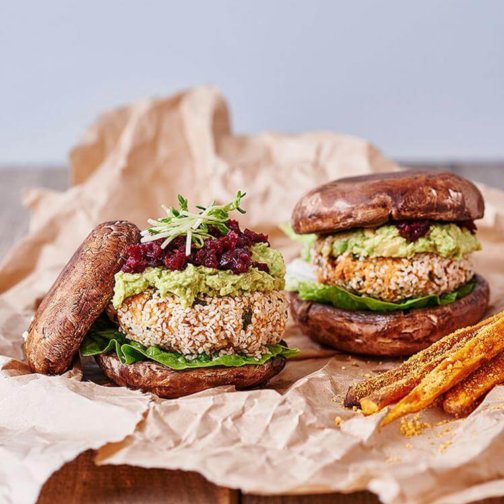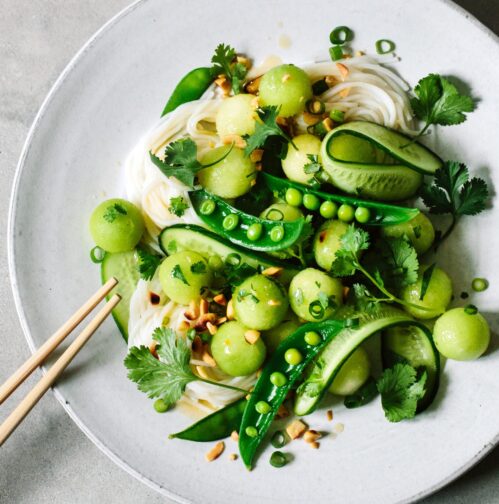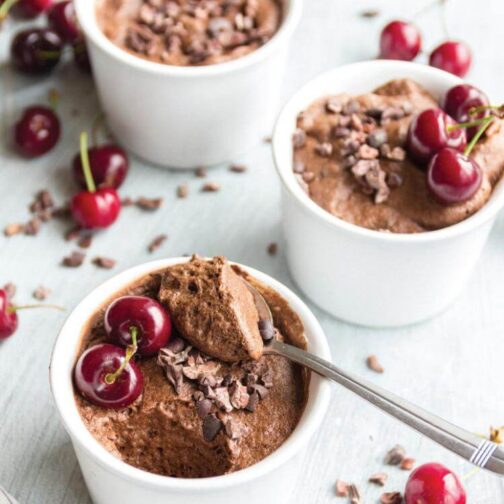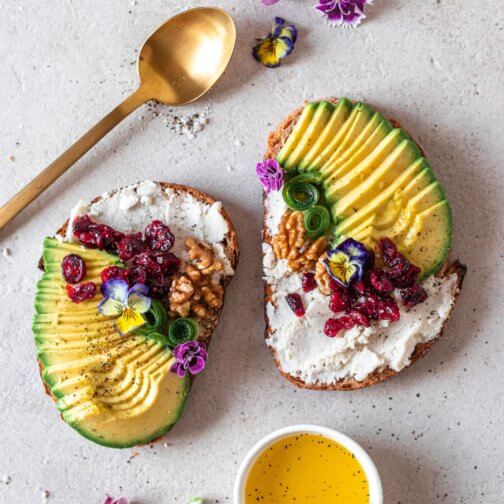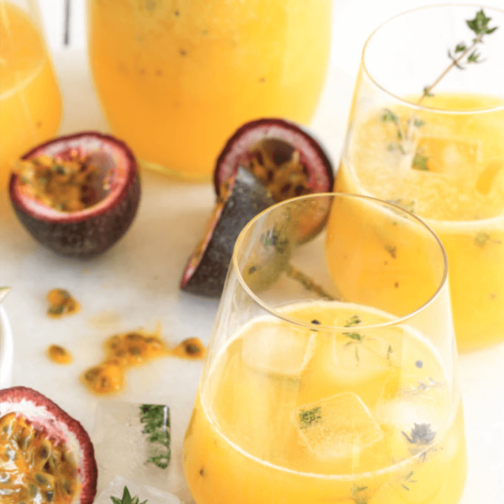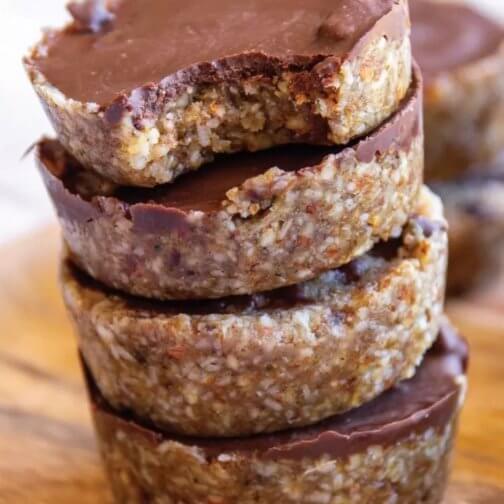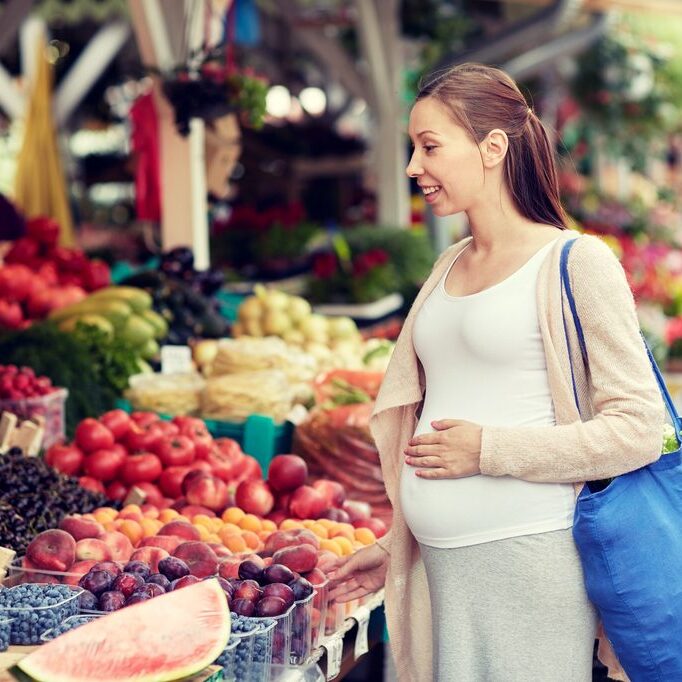
Bringing a baby into the world is a lot to ask of a body! Here are all the nutrients you’ll need along the way. And yes, your plant-based pregnancy is perfectly safe.
Pregnancy is an incredibly special and exciting time, but it can also be a challenging time for expectant mothers because it brings many changes, both physically and mentally. Nutrition and lifestyle can become a primary concern as we want to ensure optimal growth and development of the baby.
Sometimes, pregnant women who follow a vegan or plant-based lifestyle may be told that fish, meat, and eggs should be introduced to ensure ‘adequate nutrition’. However, this information is not accurate and is usually recommended by health professionals who have not been educated in plant-based nutrition. In fact, back in 2013, the Australian Dietary Guidelines affirmed that appropriately planned vegetarian and vegan diets are healthful and nutritionally adequate for all stages of the lifecycle – a position also supported by the American Academy of Nutrition and Dietetics.
Regardless of dietary choice, it’s important that all pregnant women ensure they are getting all the important nutrients through diet and supplementation. Expectant mums have increased requirements during pregnancy, particularly in the second and third trimesters. Let’s run through the key nutrients to be aware of, and how to meet your plant-based needs.
PROTEIN
Protein requirements increase by about 10 percent during pregnancy to allow the baby to develop organs, bones, and muscle. This is equivalent to around an additional 25 grams of protein per day for most women, on top of their usual requirement. For those eating plant-based, this could be a cup of tofu and a handful of pistachios on top of their normal protein intake.
VITAMIN B12
Vitamin B12 is an essential vitamin at all times, and is also crucial for a healthy pregnancy. Undiagnosed B12 deficiency in pregnancy can be devastating, potentially leading to irreversible neurological damage to the infant. It’s important to note that B12 is made by bacteria that blankets the earth, not by plants or animals. Animal products contain B12 because when those animals graze, they take in bacteria through the soil and by drinking untreated water. Many animals farmed for food don’t get to graze outside and are therefore supplemented with B12 in their feed.
People who only eat plants can obtain B12 in two ways: by taking a B12 supplement or by eating fortified plant foods. Fortified foods such as nutritional yeast and plant milks are helpful, but B12 supplementation is a non-negotiable for all vegans and particularly for pregnant women. Pregnant women require about 2.8 micrograms per day, but because only a tiny portion is absorbed, a dose of 250 micrograms per day or 2500 micrograms per week is recommended.
FOLATE
Folate is critical for the healthy growth and development of the foetus; it protects the baby from neural tube defects. And since the most rapid growth occurs in the first few weeks after conception, adequate folate levels are important even prior to conception. Folate can be sourced from leafy green vegetables, broccoli, Brussels sprouts, peas, chickpeas, and fortified cereals. A daily supplement of 600 micrograms per day, taken alongside good food sources, is recommended during pregnancy.
IRON
Regardless of the type of diet women eat, some will need to supplement with iron as their pregnancy progresses. It is important that expectant mothers discuss iron supplementation with their healthcare provider. Iron is also found in many plant foods, including beans, dark green vegetables, dried fruits, blackstrap molasses, wholegrains, nuts, and seeds. It is recommended that you eat these with vitamin-C-rich foods to aid absorption. So pair them with foods such as lemons, limes, fruits, and capsicums.
ZINC
Zinc requirements increase in pregnancy as it is required for the baby’s cell growth and brain development. Zinc from plants is not easily absorbable due to the high levels of phytates also found in these foods. So while the recommended daily intake of zinc during pregnancy is typically 11 milligrams, this increases to 16.5 milligrams per day for those following a vegan diet. Food sources include pumpkin seeds, sesame seeds, beans, and lentils. Absorption of zinc can be enhanced by eating sourdough breads, pre-soaking and rinsing legumes before cooking, and sprouting seeds and grains before consuming.
IODINE
Iodine is important for thyroid function during pregnancy. In Australia, all breads are fortified with iodine except for organic varieties. Some breakfast cereals are also fortified. Pregnant women who ordinarily use traditional salt should swap this out for iodised salt. It’s a good idea to also include some seaweed. Iodine insufficiency has been found to occur in omnivores, vegetarians, and vegans, so taking a pregnancy multivitamin that contains iodine is recommended.
OMEGA-3 FATTY ACIDS
It’s important to consume enough omega-3 fatty acids during pregnancy as this can reduce the risk of preterm delivery and low birthweight. The active forms of omega-3 fatty acids, known as preformed EPA and DHA, are found mostly in fish and algae, and are the building blocks in the development of the baby’s brain, nerves, and eyes. The non-active form of omega-3, known as ALA, can be found in flaxseeds, walnuts, and hempseeds, but our body has to then convert this into the active form. Sometimes this conversion rate can be poor; however, interestingly, it seems that for those who do not consume fish, the conversion rate of ALA into the active EPA and DHA can increase naturally in the body to allow for the adequate supply of fatty acids. As a precaution, pregnant women should aim to consume two servings of ALA-rich omega-3s in their diet daily (such as two tablespoons of flaxseed), along with a marine algae supplement (around 250 milligrams).
A caution: while some fish contain the active form of EPA and DHA, studies have shown that pregnant women who eat fish are exposed to toxins, including microplastics. Around 84 percent of the world’s fish contain unsafe levels of mercury, which can cross the placenta and accumulate in the baby’s tissues, which in turn can slow brain development.
CALCIUM
There are no extra requirements for calcium during pregnancy, but mums-to-be should ensure they are getting the recommended daily intake of 1000 milligrams daily because the growing baby will take what they need, and mum’s bone health may suffer. Be sure to include foods such as tofu, dark leafy greens, beans, dried figs, tahini, almond butter, and calcium-fortified soy milk and juices.
VITAMIN D
Vitamin D is the sunshine vitamin. If safe, daily sun exposure is not possible (five to 15 minutes on the face and arms), then a vitamin D supplement containing 600 IU must be taken. If levels are already low, higher amounts may be recommended by your doctor.
PLANT-BASED CAN BE PROTECTIVE
While this might sound like a lot of nutrients to be aware of, this is the case for all pregnant women. Those who choose a plant-based diet can also experience many benefits for doing so. Plant-based diets may be protective against pre-eclampsia, characterised by dangerously high blood pressure. Pre-eclampsia is linked with hypertension, which is prevalent in those who consume animal-based diets. In a study of 775 pregnant women who avoided animal-based foods, only one occurrence of pre-eclampsia was found.
Plant-based diets may also protect women from developing gestational diabetes. One study involving over 2,000 pregnant women found that the greater the amount of plants they included in their diets, the lower their risk of developing gestational diabetes. The Nurses’ Health Study II involved over 13,000 women and found that a decreased fibre intake (common in animal-based diets) and high glycaemic diets were associated with an increased risk of gestational diabetes.
Pregnant women who follow plant-based diets don’t suffer constipation as much as others because they have a higher intake of fibre, which also leads to a healthier and more diverse microbiome. They also have a decreased incidence of calf cramps and less exposure to the toxins found in cured meats (nitrates), fish (mercury), and many animal products (added hormones).
So rest assured, with the same attention to diet and nutrition any pregnancy requires, a plant-based pregnancy is just as safe and healthy – and can even offer some bonus protections!
***
Managing morning sickness
Morning sickness is horrible, but luckily it isn’t dangerous for mum or baby unless it is severe (hyperemesis gravidarum). Here’s how to help alleviate that nausea:
|



